Student teams receive first thousands of euros from BOOST
Nine TU/e student teams received a check for tens of thousands of euros intended for their innovative projects. It is the first round of subsidies from the Dutch fund for student teams (BOOST). The founders of the fund stopped by to surprise the teams.
The student teams could apply for a grant of 25,000 euros to a maximum of 40,000 euros for their innovative ideas. Team Polar, TU/ecomotive, SOLID, Inmotion, Aero Team Eindhoven and University Racing Eindhoven will receive almost the maximum amount. Team VOID will receive 30,000 euros. Aster and Virtue will both receive 25,000 euros.
“I never dreamed that the first round would already be so successful,” says BOOST co-founder Nick Hol on Friday after the presentation of the checks. “We already had too many applications in this round and know that teams are ready for the next one.” He notices a lot of interest among education institutions in Brabant to have students participate in student teams or set up their own one. “This shows that what we have put in place is really needed, especially in a time of large-scale education budget cuts.”
BOOST was founded by five former members of TU/e student teams, primarily at the request of the university. What began as an idea for a sort of “TU/e student teams friends club” developed into a fund supported by the province, intended for all students in vocational education (MBO), higher vocational education (HBO) and scientific education (WO). They can apply for funding to set up a team or realize a project within a team. The province has set aside 1.6 million euros for the grants for a period of five years.
New round
Smaller teams have not yet been able to apply for the grant because of the minimum amount of 25,000 euros on the application and a co-financing arrangement; the teams themselves must bring in as much money as they receive from the fund.
Hol therefore emphasizes that the first round has been a pilot. "Since this funding program is quite unique in the Netherlands, we wanted to see how students would react to it. Now we received applications mainly from larger teams working on high-tech solutions, but there are also fantastic innovative projects that are less high-tech in scope and need less funding."
BOOST has received feedback from multiple parties and will look at how the next rounds of grants can better match teams. One focus point will be lowering the minimum application amount.
Scheme
The co-financing arrangement does remain, Hol says: "We want to support innovative student-led projects, but not projects that teams develop solitarily. So for that, they have to work well with society and industry."
![[Translate to English:]](/fileadmin/_processed_/c/c/csm__DSC8251_f002ecc92b.jpg)

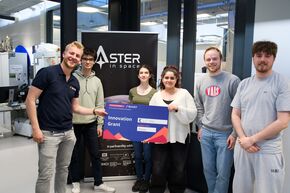
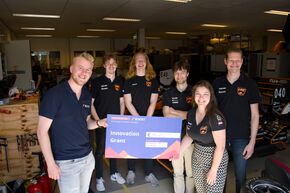
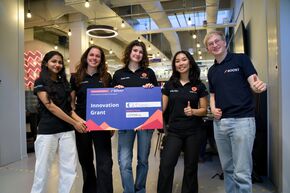
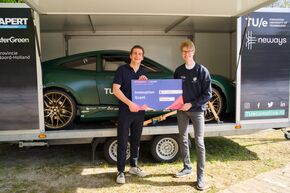
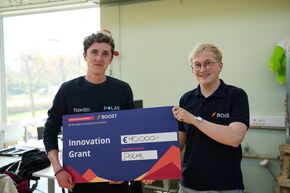
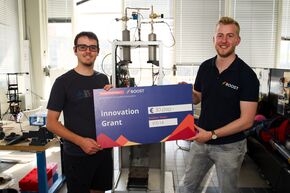
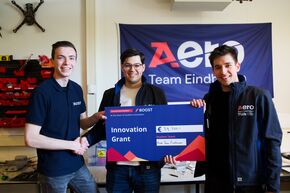
Discussion